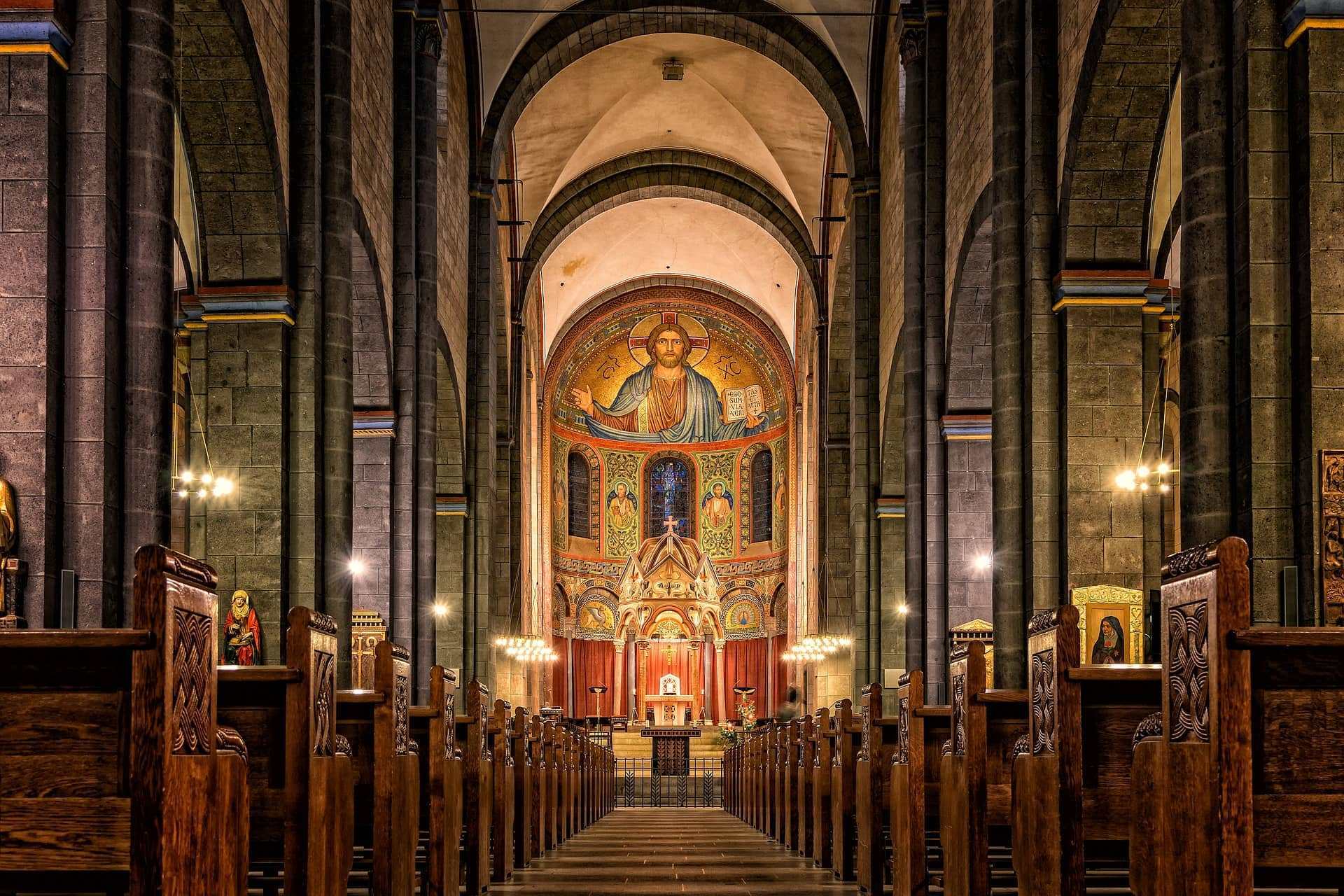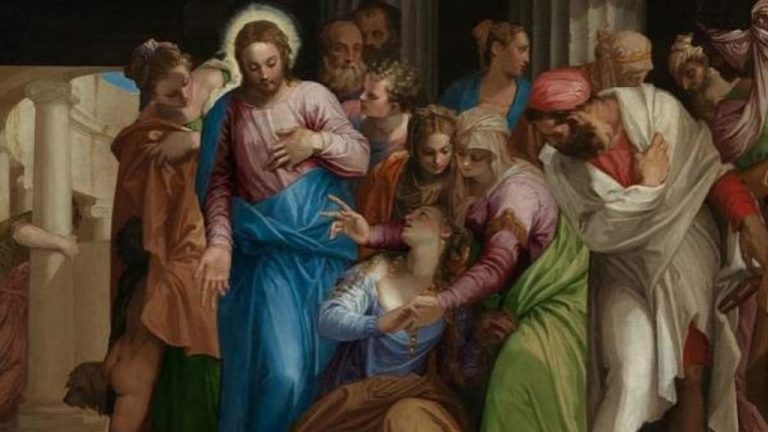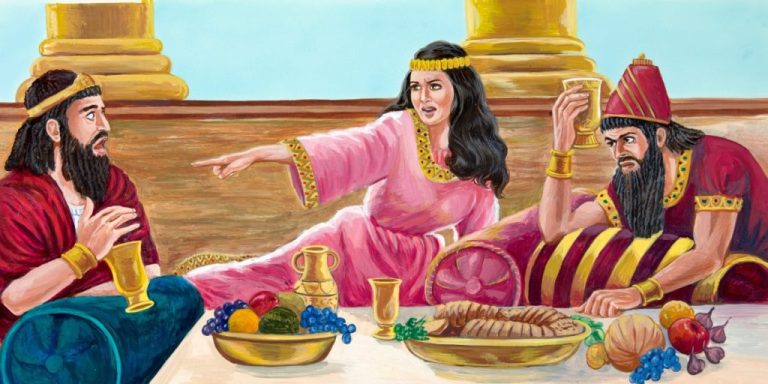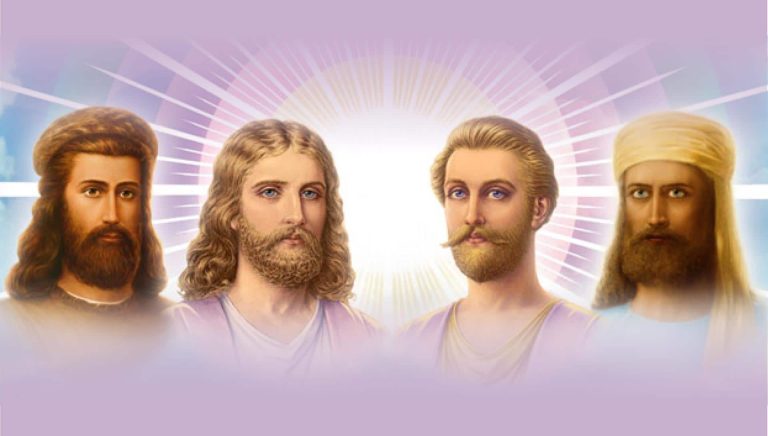Christianity in Europe: History, Expansion, Influence and More
Christianity is one of the most rehearsed religions on the planet, it is the most notable within any other religion and it is on a solid top in Europe and that is the reason why today we will talk a little bit about Christianity in Europe.
History of Christianity in Europe
The historical context of Christianity in Europe is as old as Christianity itself, that is, if we consider Jesus Christ as the first to create the Christian religion, giving rise to the expression “Christianity”.
As the Bible indicates and the narration of history reveals to us that after the death of Jesus Christ, his devotees were at the leadership of the mission that Jesus began when he came to earth to give lectures or evangelization about the uplifting and salvation news in all the land.
Christian Catholics have a lot to do with the beginning of Christianity in Europe, considering that as true Christians they affirm that the apostle who had the congregation as the servant of God, most notable on earth, was the missionary Peter.
At the time that the Church was beginning during the first few hundred years in the Roman Empire, a Christian Europe appeared which became its reasoning, organizations and culture. Surely, the belief system of Constantine in the 4th century was one of the pillars of early Europe, where the Church became the focal point of open life, while the government appeared later related to the affairs of the Church. church. (See also: Do you know who were Shepherds in the Bible, before following Jesus ?)
The truth of the matter is that a Christian reaction arose, where Christianity and culture became personally intertwined, establishing the “system of Christianity”. Other researchers and specialists in history point out that the religious impact on the development of Europe was made through the absorption of moral and religious recognition of monotheism, the reference to the beliefs of the New Testament and the commitment to strengthen the relationship of art religious was connected to places of worship and colleges.
The three sources of European culture have been the Greco-Roman philosophical and legitimate origin, the Jewish religious legacy and the heritage of Christianity, fixed in the New Testament and the figure of Jesus of Nazareth. Europe is, in this sense, the secondary effect of the fusion of three perspectives, from three social approaches: Jerusalem, Athens and Rome.
Jerusalem speaks of “monotheism”, which incorporates the Jewish Bible, Athens brings the Greek “logos”, which offer an ascent to culture and make theoretical sciences and positive humanistic theoretical advances give figure and engineering to the continent and Rome symbolizes the “ right” of the individual, epic overcoming, and political association, along with the papacy, the religious focal point of Christendom.
After the break between Byzantium and Rome in 1054, Christian Western Europe was cut off from Eastern Europe and obtains an iron state color and offers rise to a “consecrated domain” depending on the Pope where all its individuals were sanctified through the water through baptism. Later, in the 16th century, due to the change of Luther, Europe seems isolated between the Reformation and the Counter-Reformation, with philosophical debates and religious wars.
At this point, since the 16th century, three religious universes have been better positioned on planet earth: the “Latin” one, where Catholicism prevails; the “German”, affected by Protestantism, and the “Slavic”, in which various orthodox religions win, the Christian religious roots are varied and expanded, a good example of this is the Spain of the three societies.
The universe of the “new system”, conceived from the French Revolution, which is solidified with secularism, also has an interest in European development. The French Revolution exchanged the “old system” and against the assessment of the Church, created a self-government without religious dependence, the election based on popularity was forced from the eighteenth century. (See article: The power of Prayer )
That is the ordinary Christian Europe of today, whose Christian base has undergone a purging over the years. The 19th century Church, with Pius IX and Vatican I, disagreed with the advanced European world.
Regardless of the invasion of the pope and the government, the Christian trust, pure and mature, continues in many people, together with the religious enthusiasm of some Catholic, confrontational and administrative organizations, with sentimentality for Christianity which they want to influence so that the entire European society is totally manipulated from the point of view of government, society, culture and belief.
It must be taken as a primary concern that, along with the positive achievements of a positive avant-garde development in its freedom of expression, there is also the negative side of the wars of religion, the mistreatment of governments and the evil deeds of tyrannies.
It has been a wealth for Europe, not only for the Catholic Church, the Second Vatican Council, for the recognition of the movement that promotes that all churches be Christian, the discourse between religions, religious opportunities and the commitment to harmony, remains in the perfect world they pose and expectation.
In this way, it is worth remembering the Christian foundations of Europe with respect to following its constitution as an extraordinary and common, multicultural and multiethnic plural State, which promotes the disconnection between Western power and Arab nations, working for harmony between Jews. and Palestinians.
Expansion
Constantine I, emperor of Rome, was the person who, through the Edict of Milan, declared in the year 313 that he rejected the abuse of Christians. In general, what he established was that, in the Roman Empire, individuals could try any religion without being bothered by Roman soldiers.
In this way, the abuse of Christians stopped and they had the option to practice without inhibitions their love and belief in Jesus and God. Despite this, Christianity was not the official religion of the Roman Empire, however, little by little Christians spread throughout the kingdom. (See Article: The power of early morning prayer )
The one who made Christianity an official religion of the kingdom was Emperor Theodosius, this happened in the year 380 after Christ, that is, more than 60 years after the Edict of Milan was authorized in the year 313, this is the reason why which Christianity increased significantly compared to previous years.
Mainly, the Roman Christians began to be people of good social position, who combined the Christian religion over others that were considered inappropriate. Steadily, the chapels or their delegates began to meet and developed as a similar religion and followed the model of common Roman organization.
That is to say, they made territories directed by an ecclesiastical supervisor, they were separated into bishoprics represented by a diocesan. Different individuals who searched for a real existence of petition and holiness began to make little special areas where they loved God.
Germanic people groups in the 5th century began attacking the domains of the Western Roman Empire, and despite how they had their own convictions and divine beings, as time went on and gratitude to the churches and evangelizers of the time, numerous Germanics became Christians.
Despite having a conflict of societies and races, there was also the feeling of being from another world, considering that the Germans had their own convictions and the Romans had faith in a God, creator of everything and who came to die on the cross for U.S.
With the Germanic shift to Christianity, it could be said that Christianity in Europe was united, even though when the Muslim leaders raided the Roman regions, they asked the Germanic for help in finishing off the Europeans and they heeded the call.
Pope Leo the third, in the year 800, had the activity of making a kingdom as incredible as the Roman one, but all under the idea of Christian trust, that is, with Christianity as an official religion. Be that as it may, that little domain did not last long. (See Article: psalm 91 of the bible a night prayer )
After 162 years, the main circumstances occur that would offer the ascent to what was the Holy Roman Empire, since when the Muslims began their victory battles, compromising the Roman and Christian lands, Pope John XII requested help from the Germans who and they went to her.
At that time, in the year 962, the pope delegated Otto the First as ruler and thus the Holy Roman Empire was brought into the world, whose objective was to protect itself from the attacks of Muslim adversaries and join the intensity of the congregation, with the political capacity to deal with the problems that plagued the kingdom and since then, with military and ecclesiastical power at hand, Christianity was maintained and spread throughout Europe.
Influence
Despite the fact that it might seem untrue, a great deal of Christianity was created in Europe and spread from that point to the rest of the world, that is, in the single remaining century and before, there could not have been Christian Europe, however, seems to have struggled and chosen to go their separate ways, after a century. (See Article: Psalm 91 a prayer for protection and mental and physical healing )
Christian politics considered as its first function to help the people to achieve eternal life through religious institutions with evangelization activities. These managed to be founded thanks to large donations from around the world.
Gregorian chant was the highest expression of Christian music and was spread throughout the world in order for Europe to recover from the Seljuk Turks, the scenes of the life of Christ (the Holy Places) became great crossroads.
The Popes granted spiritual graces to those who participated, there were eight popes in total, between the 11th and 13th centuries and thanks to the crusades it was possible to recover Jerusalem, Bethlehem, Nazareth and Antioch and that is why, between the 10th and 12th centuries, with the appearance of two great orders, Cluni and Cister.
It was the rupture between the Roman empires of East and West, the Eastern Schism was consummated in 1054 and the causes of this rupture were: The cult of images, The mystery of the Holy Trinity (in the East the Holy Spirit came only from the Father and in the Church of Rome it proceeded from the Father and the Son and The patriarchs of Constantinople did not want to be subject to the authority of the pope.
In Europe, the tombs of San Pedro in Rome and Santiago el Mayor in Compostela created a stream of pilgrims who, with their faith, made the difficult path and turned it into a very important means of religious and cultural transmission, they were routes traveled by the faithful as a means of personal sanctification or expiation of sins and the main roads reached the Holy Land.
After the coronation of Carlo Magno in the year 800, Christianity was made up of peoples united by faith and governed by 2 authorities: the spiritual, with the Pope, and the temporal, with the emperor. (See also: Baby Protection Prayer )
The feudal era was one of great contrasts, rural society was subjected to feudal lords, the popes fought to eliminate the vices that society suffered from, such as: simony: purchase-sale of ecclesiastical offices, lay investiture: provision of ecclesiastical positions on the part of nobles and feudal lords, the little exemplarity of the clergy.
The feudal system also affected the monasteries since the great lords took possession of them, in fact, at the beginning of the 10th century, it was difficult to find monks in the West who led a true religious life.
In all those years, through painting and sculpture, the people, who were illiterate and did not have access to sacred texts, were instructed and after the death of Charlemagne, feudalism arose. This was a contract by which the king and the great lords protected their vassals in exchange for a tribute, money, work or kind and due to the feudal system, the ecclesiastical situation gradually deteriorated and the feudal lords interfered in its operation and institutions.
The artists used a naturalistic, flat and frontal language with an abundance of symbols. Romanesque art was a profound renewal of the Church, which aspired to the establishment in society of a life in accordance with the Gospel and due to pilgrimages, a new style emerged that combined Western and Eastern elements.
The number of Christians has dramatically decreased centuries later, in contrast to the main continental lands of the planet, it is assessed that Europe centuries later will be a land mass with no majority religion and perhaps a minority of Christian followers.
Young people have lost enthusiasm for religious topics and as the studies indicate, the majority of young people between the ages of 16 and 26 have declared themselves incredulous or skeptical. In the UK and the Netherlands, the level of Christians is less than half, with only 10% of them and 30% of the entire European continent.
How did Christianity arise in Europe?
In the 380s after Christ, the emperor Theodosius, of Hispanic origin, asked Christianity to be the main religious authority of the kingdom, in the western part of the European Empire, Christianity quickly flourished in the Roman city, the congregation of Rome quickly had a large number of individuals.
The Church followed the model of the Roman common organization: it made areas, managed by an ecclesiastical or metropolitan supervisor, the regions were isolated in seats, which were administered by a bishop to whom the fathers of each parish passed their work that they carried out in the community where they were.
In the year 800, Pope Leo the third, tried to modify a kingdom like the Roman under the indication of the Christian trust, but his duration was short.
Some time later, before the development of Islam, Pope John XII approached the Germans for help and in 962, he delegated the emperor to Otto I, thus the Holy Roman Empire was conceived, whose ability was to join the political power and the Church.
Christianity in Europe arose due to the development of the Roman Empire, which upon reaching the holy grounds, their societies and convictions merged with those of the Christians and despite the fact that the Romans who attacked the Christians eventually changed to Christianity and in this way it spread through the European domains ordered by the Romans. (See also: Job Protection Prayer )





![Respect for the human being must prevail in the thoughts and attitudes of one person to another, likewise, respect for women must exist and be strengthened, since women, being delicate and the weaker sex, must enjoy this feeling at the level of all people and in all social spheres. respect for women Table of Contents [ Hide ] 1 Respect for women 2 Question of culture 3 Respect in everyday life 4 The quest for freedom 5 Phrases of respect 6 What to beat 6.1 Different in functions 6.2 Other rules to keep in mind 7 The Bible and women 8 Respect at home 8.1 How to solve this type of situation? 9 Conclusion respect for women Respect for women must be, as we said before, the feeling that must be expressed in each social and general sphere of all people, mainly by the male sex. This should not become just an altruistic act of man as being chivalrous and being attentive and cordial with a weaker and more delicate being. Her dignity as a woman is for herself. question of culture In relation to the culture that we have, women have played a bonding role in relation to men. At the beginning, as a pretext, the superiority of men over women is imposed in the form of dominance. However, there are other elements that arise as excuses, such as the work that women do at home and care for their family. In this way, the man continues to be the breadwinner of the family in the economic sphere and the woman is in charge of running the home and everything that this implies. However, at the present time and with women's liberation and the current situation of the economy, women have been forced to also serve as support in the economic sphere of the home, contributing to the expenses of the home and their family. In the previous case, despite the fact that the woman now has the obligation, just like the man, to leave the house to work and look for daily sustenance. They continue to maintain their obligation to care for their children, the house, their chores, for this reason this allows the man to continue feeling like a boss and thinks that the woman should obey him. With the foregoing, women are allowed to live in a situation of disadvantage in which their decision-making part is affected. Taking into account that she can often make important decisions in relation to her life. Due to the fact that as a child and until puberty she will depend on the decision of her parents at all times until she comes of age, then she passes to the wife phase and that is when she begins to depend on the decisions of her husband. Respect in everyday life Women must be respected at all times, but we must ask ourselves, where and when should this change begin? Likewise, we must ask ourselves the following question: where and when is it customary to develop this type of inconvenience? We must look for the answer in our own home as well as in school, in the time of formation. Most of the attitudes of the human being are developed under the control of parents, for this reason those who logically exert great influence on the attitude and decisions of young people are parents. In the case of men, their attitude will depend on the way they are raised and the decisions made by their parents during their youth. This is what allows them to have a certain attitude towards women in the future. respect for women Obviously, the problem can be improved by using keys to improve the problem that occur from the early education stage, which should be adequate and that gets involved in the home with the support of the parents. The search for freedom The woman during her phase of stages has been climbing spaces in social life and has begun to exercise part of her freedom. It is an achievement that benefits her at the level of studies, technical and professional work. All this has been positive for her since she has been occupying positions of greater importance every day that time goes by. However, there are some spaces in which women's performance is still restricted, as is the case in business. Sometimes her presence is only allowed for the convenience of her liberal appearance. The woman is still considered second party in many areas. Phrases of respect Not only must we act at the school level, we must also keep in mind some phrases of respect for women , which are usually important and should induce us to be respected in terms of the decisions they make. The concept of machismo that has caused so much damage since ancient times must be changed, and that even today is still a cause of discrimination and lack of respect for women, being for them a cause of sadness and often silent suffering. This is also a cause of possible gender violence, which today also has a high percentage rate in the world due to the same macho attitude and its minority in so many aspects of daily life. For this reason and as we said, there are phrases that we must put into practice of respect for women and that are taken into consideration in all social, work and personal sense, namely: 1. The woman is not only a body Likewise, the way of speaking is usually part of the macho attitudes of some men. A woman should not be treated according to her body parts. For example, we see it very often nowadays, they refer to it as "a good butt". This has already been done in a common way and today it is accepted naturally in society, as well as in advertisements, among friends, on television, etc. If we do not know her name, it is better to leave her alone and not refer to her. We must also keep in mind that man is never called or mentioned by any particular part of his body. 2. The woman will be able to dress as she wants Another attitude that must be changed regarding the way of seeing women is the way they dress, many times it is seen as provocative, she can dress the way she wants. Society must understand that women dress in different ways and not with the sense of flirting with a man or looking for another intention with him. Still many young people reliably forbid their girlfriends the way they should dress. This attitude is also considered machismo. 3. No one owns anyone Another attitude against respect for women is that many men and young people think that the girl is their absolute property. This is a big mistake and one more attitude of machismo against her. We must keep in mind that no one owns another. Not even the same parents are owners of our own children. With this type of attitude, problems can arise at the level of jealousy since possessive attitudes begin to appear. This type of attitude will bring problems after problems. That is why it is important that the concept that no one owns anyone is understood and with this we will avoid so many problems that are created for this reason such as machismo, and gender violence. 4. Not controlling your movements Another attitude that will have to be totally changed is to try to control the woman's movements. The bad habit of checking the phone for messages, checking who she talks to, etc. should be avoided. On the contrary, you should try to resolve this attitude in a conscious way and talking at all times. Women have the right to have a private life and should not be allowed to be controlled. She should observe if the man with whom she is related does not have a positive attitude of change or does not present the possibility of correcting such an attitude, the woman should think about the possibility of changing the relationship if necessary. 5. 'No' means 'no' The woman must have the decision to say "no" and this decision must be respected by anyone, mainly by the partner she has at the time. The man must respect that "no" of the woman since otherwise it is considered a lack of respect for the woman. Similarly, some couples should respect when the girl says "no" in response to a certain attitude, the man should respect if the girl says no means no. This decision probably does not have a rectification in it and if not, it must be respected. 6. Ask for help It is important to determine if the partners that the woman has have any type of mental or psychological problem, since if so, it must be resolved through medical means. Since this type of behavior can occur from childhood and must be resolved, so that the woman does not suffer this type of situation that often denigrates her. what to beat It is also important to put an end once and for all to the absurd idea regarding the dignity of women as well as that of children, one must think of their absolute weakness. In the liturgical writing itself it is observed how it determines that the marriage is made up of two men and women, and on the latter it establishes her as "companion of equal dignity", likewise the orientation before marriage determines the spouses as head of the household, both spouses. different in functions In relation to this issue of functions, both men and women are equal in terms of dignity, but they are totally opposite in terms of the various functions. Always in the Catholic part it is determined to the spouses that both must participate in the mutual formation of the family and must help each other. Other rules to keep in mind If a woman, while married, renounces her children, we can also think that she is renouncing her right to be a woman. Civil laws regarding maternity protection for women when they are working are clear and favorable. Likewise, married couples are favorable when they apply due accompaniment between both regarding children, when the latter has the obligation to work outside. Finally, we must say in the same way that men are also praiseworthy when they share with their partner the tasks with the children in an equitable way and in terms of the responsibilities of the home itself. Respect for women is given in the home itself, among other ideas we have the following: When daughters are granted the same growth opportunities as sons. If the sister is not made an assistant to the brothers. At the time that the male children participate equally in housework. If daughters are not repressed for being a woman. By teaching children respect and fidelity to the bride. In making decisions between the wife and the husband mutually. The Bible and women The Bible outlines the following in relation to women: “That your adornment does not consist of external things, such as exaggerated hairstyles, gold garments or luxurious dresses, but on the contrary in the intimacy of the heart, in the indestructible beauty of the body. gentle and calm spirit. This kind of beauty is more important in the eyes of God.” We must make the following reflection if we do not judge a book by its cover, we should not be judging people only by their sex. In the same way, the Bible also gives word in relation to the issue of respect for women. And he teaches men in Ephesians 5:28: “The husband should love his wife as his own body. He who loves his wife loves himself.” This is due to the fact that the two, being united, become one body and apart from each other, each one puts 50% into the couple's relationship. If in any case the husband misuses that fifty percent, he automatically harms the wife in any way. And if he harms the wife in any other way, he will still be at risk of harm to himself. This is because marriage is an investment relationship in which both members participate, and everything that affects one will automatically affect the other. respect at home Another problem that afflicts respect for women is that when they work outside the home, they run into the situation that some husbands are not able to recognize the work they do at home. And besides, they do not help her in any way, in relation to this, Susan Faludi maintains: the woman does not even have the right to equality in her own house, since 70% of the trades she performs, all weigh on her and her back. How to solve this type of situation? Although for some men it is not very pleasant due to their beliefs and cultures, such tasks should be carried out following a fair work plan and balance, especially if it is the woman who works outside the home. It should also be noted that the distribution of work will take into account activities carried out by men such as car occupation, gardening, electrical and plumbing repairs. However, the time spent by the man will never be the same as the one she establishes for all the household chores. There are countries where men expect women to be the one to wash the car and keep it always clean. Likewise, this help is based on the advice that Peter gives to men in the Bible in relation to: that husbands should dwell consciously and in accordance with their wives in domestic tasks. This refers to the fact that the man should not be an invisible or insensitive figure who is under the same roof as the woman. You must respect their intelligence, experience and consider their work more in a double way, since many times the woman works in the street and also in the home itself. She, likewise, must understand the needs of women for being a wife, a mother; not only bring bread to the house and money, since with the liberation of women today they do it themselves. The husband must also understand her emotional, physical, psychological, spiritual, sexual needs, etc. Another form of disrespect for women is the fact of changing her work duties without taking into account her opinion, her wishes. In relation to this, nurse Jean maintained the following: “It would be so nice if they consult us before making any determination in our daily work. this attitude would suggest that there is good psychology. The woman needs to be shown respect, compassion, she must also feel valued and appreciated for the fact that she is a woman”. conclusion We hope that with these lines we have been able to make it clear to some men who still have sexist attitudes and dominance over women, that women have every right to be valued, respected and take their opinion into account at all times in the decisions that they may make. be taken. Likewise, that she be valued in all the areas that she can carry out, either within the home or in foreign activities if she works, for example, in the street, in all areas she must be respected and considered only for the fact of being a woman.](https://thefearlab.com/wp-content/uploads/2022/10/respeto-a-la-mujer-3-768x474.jpg)

